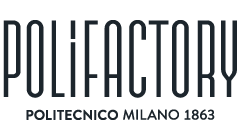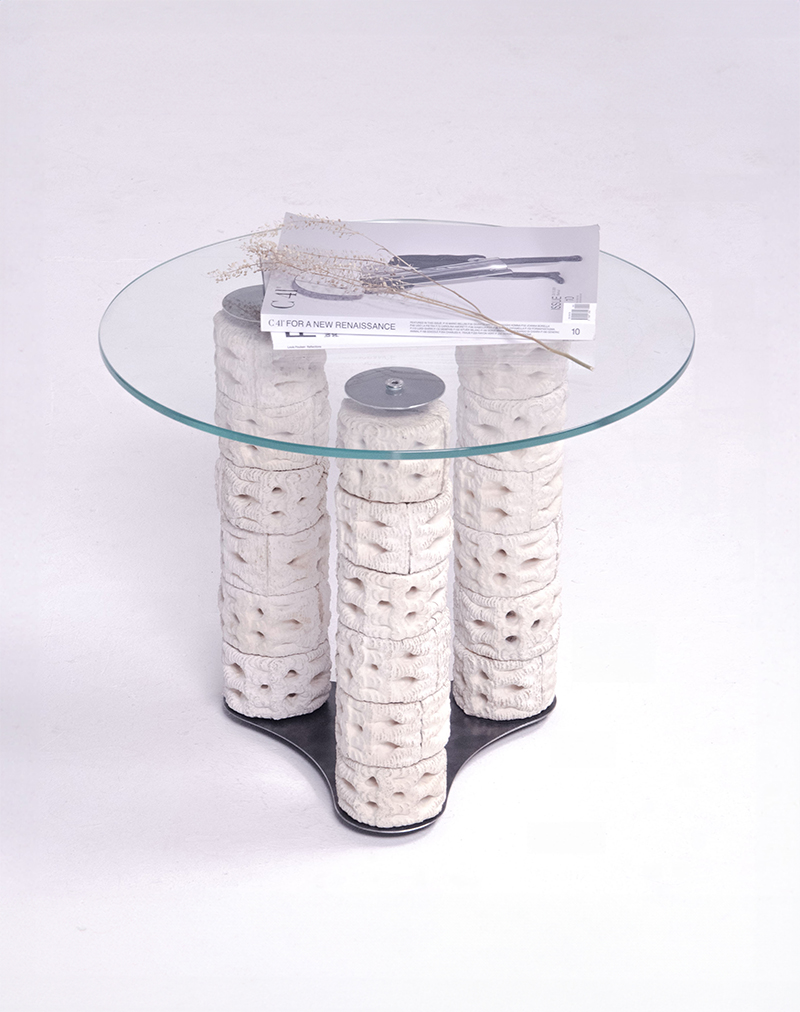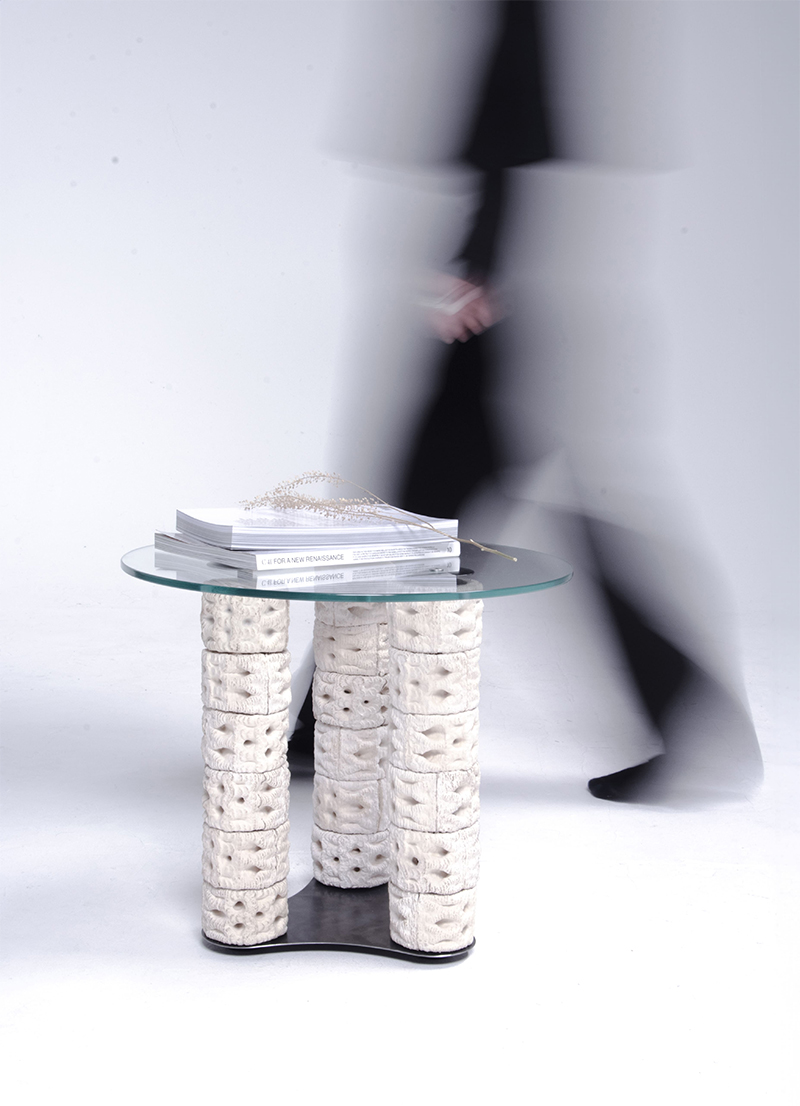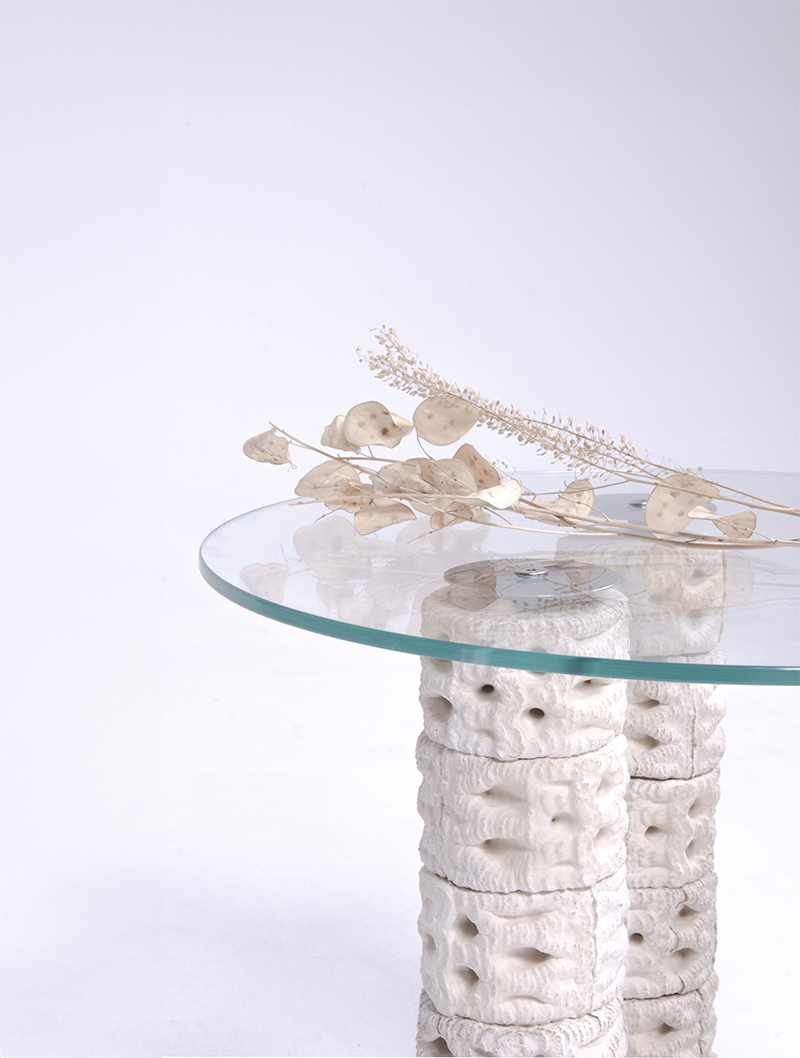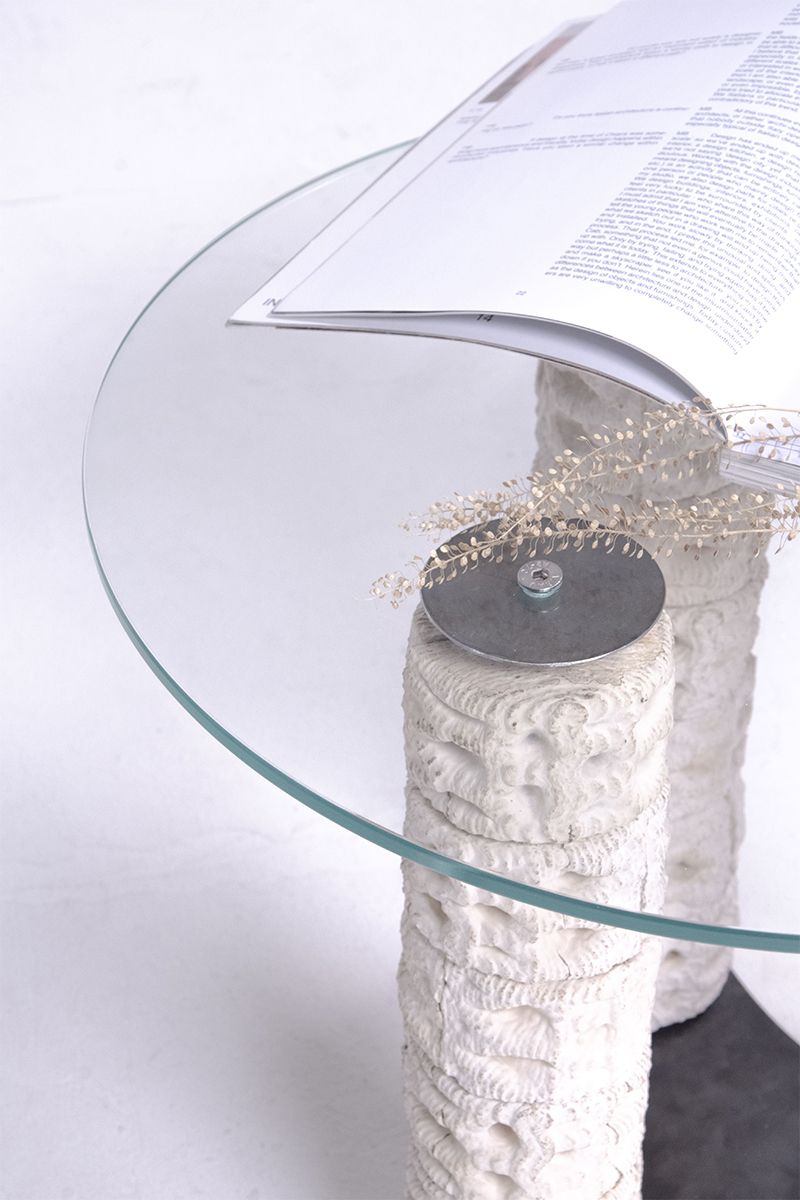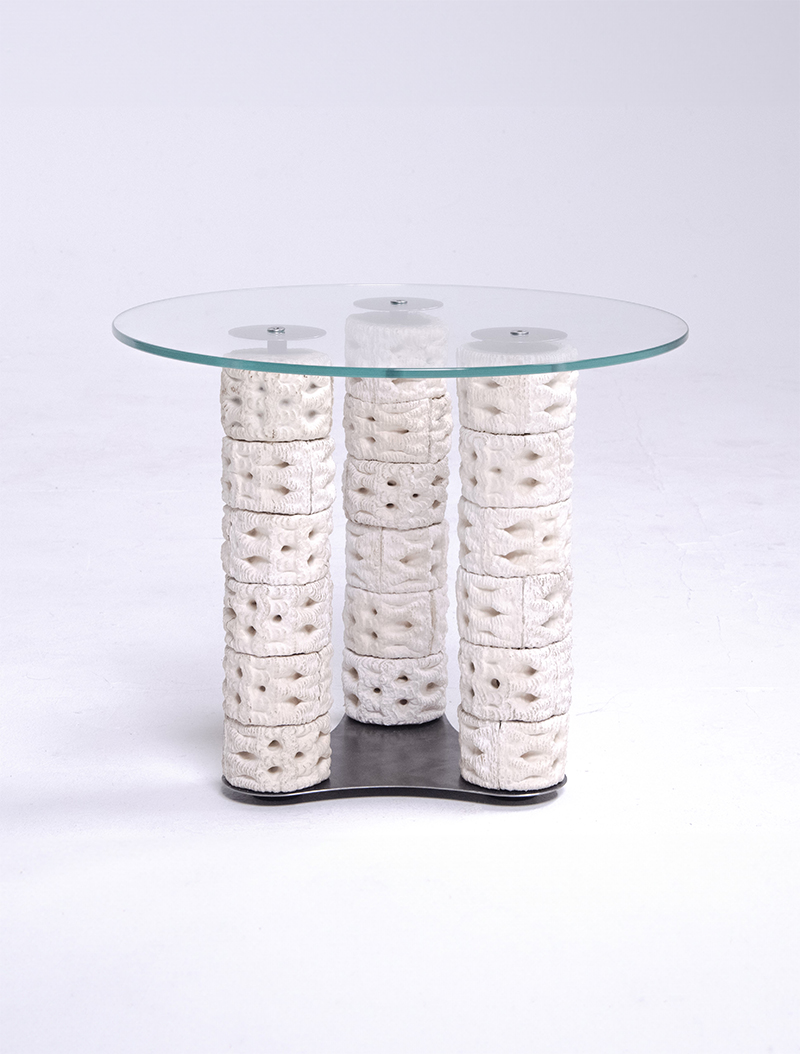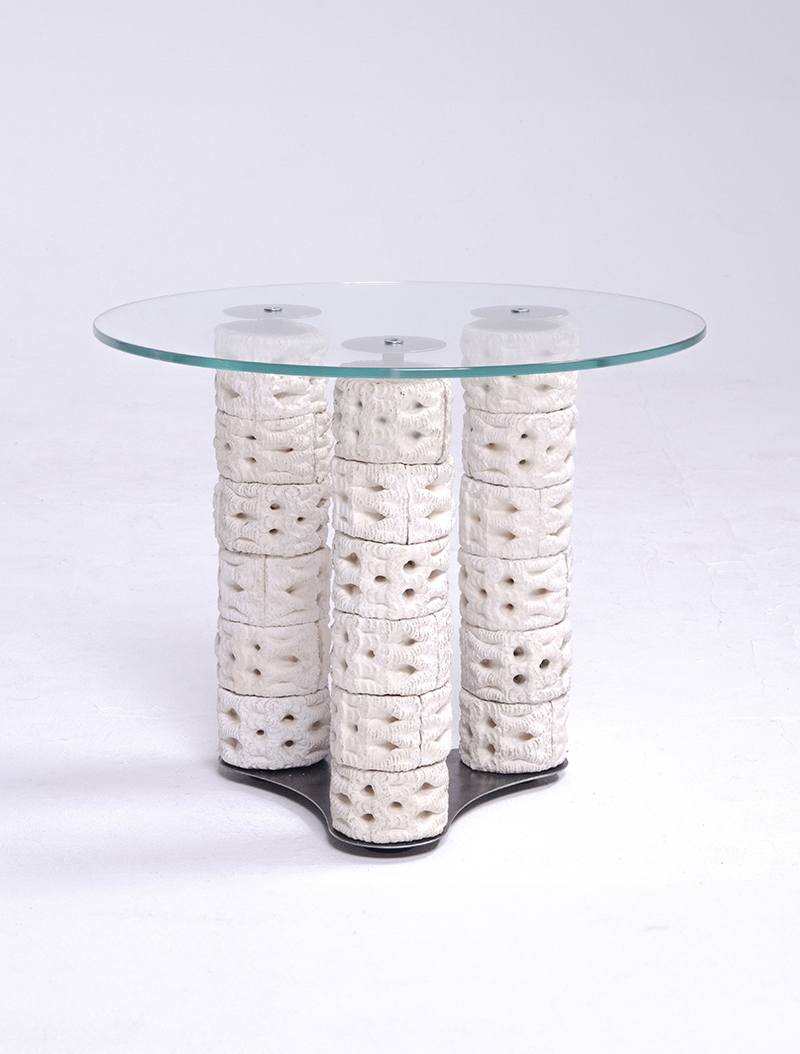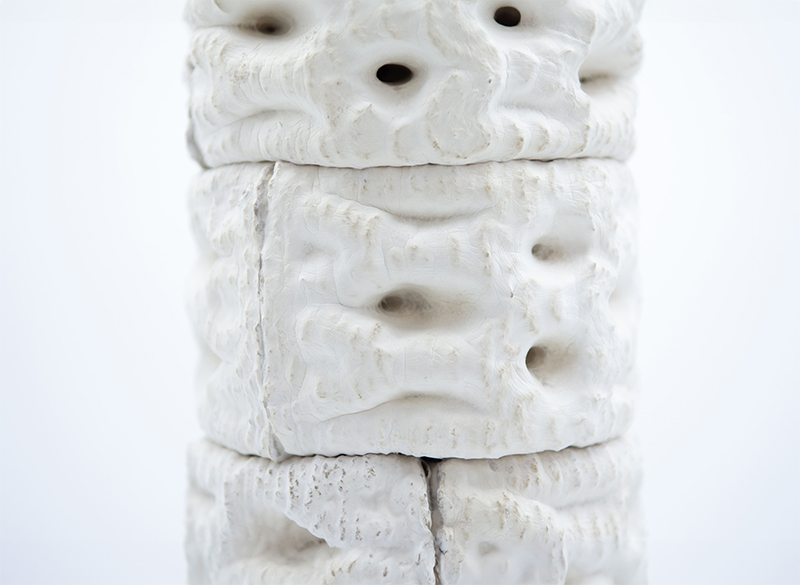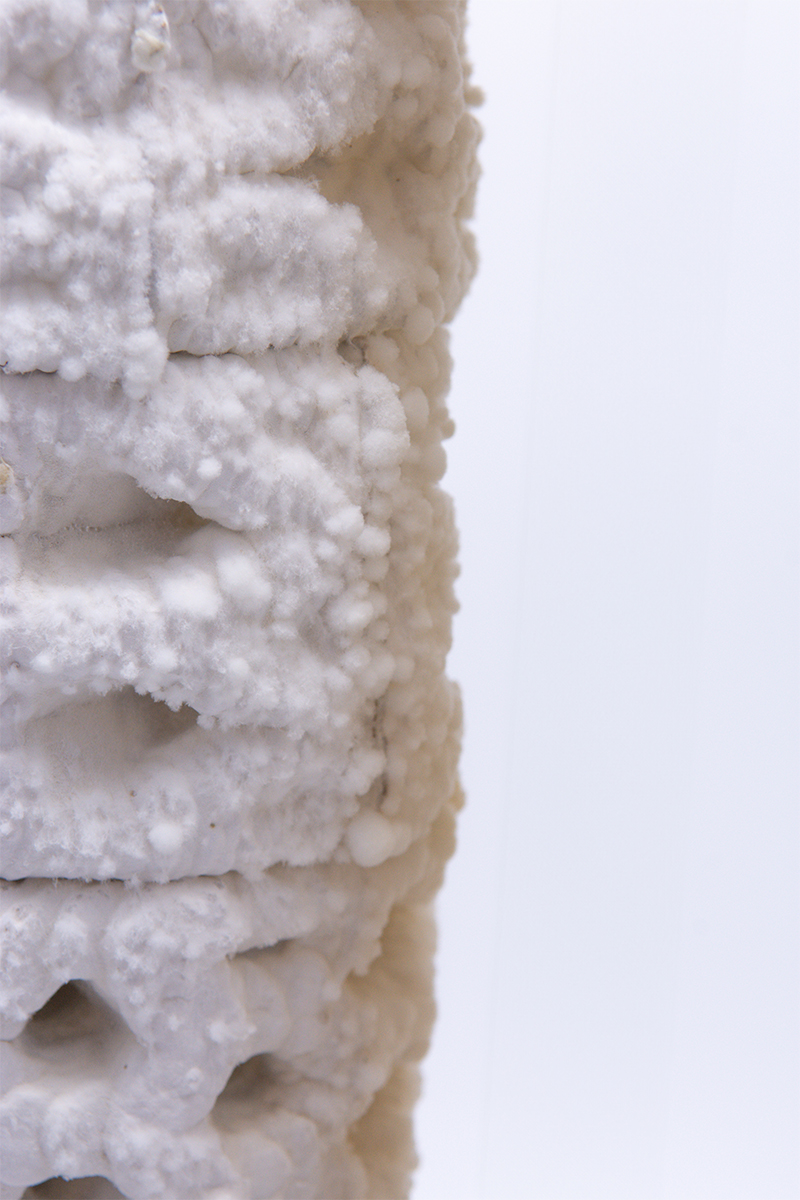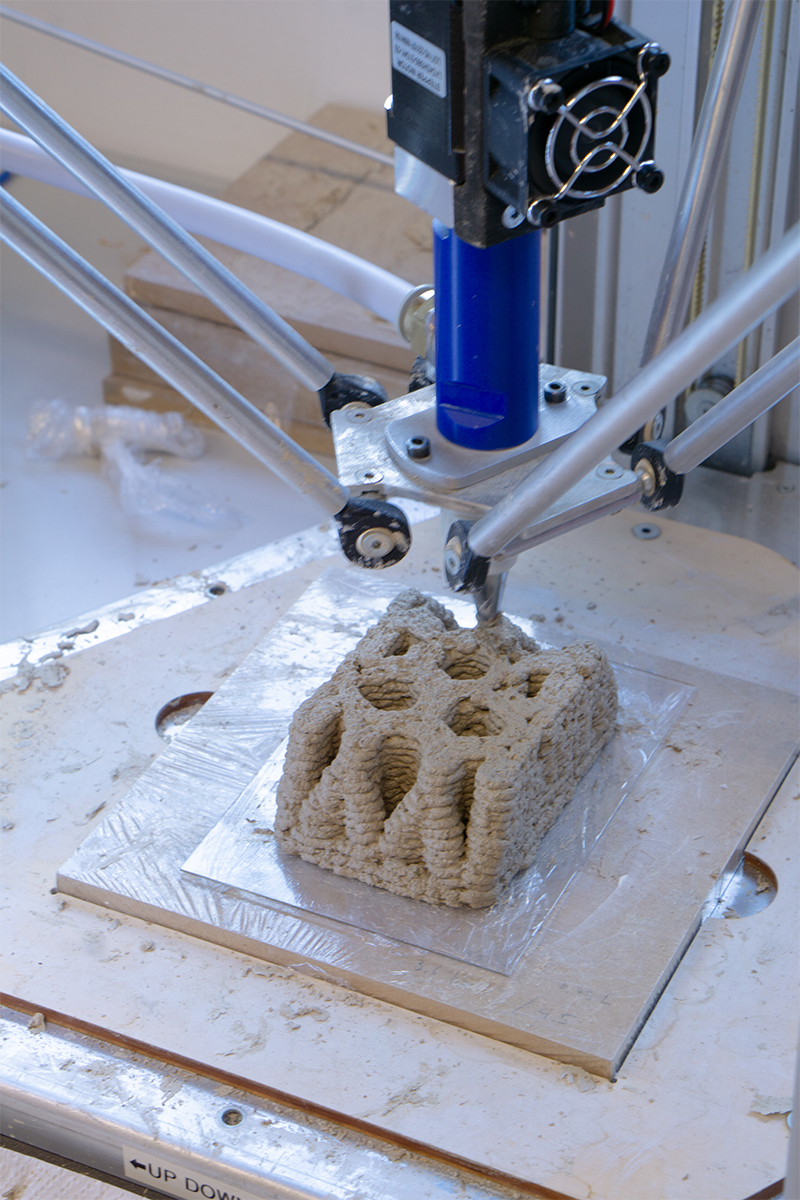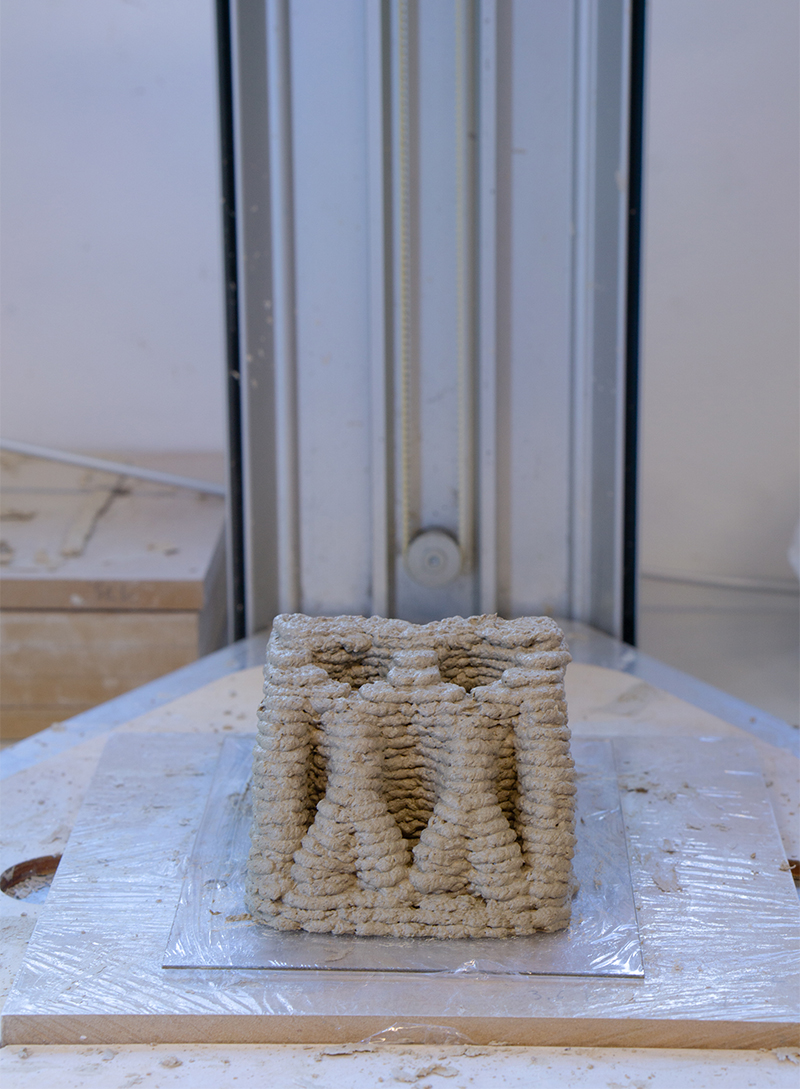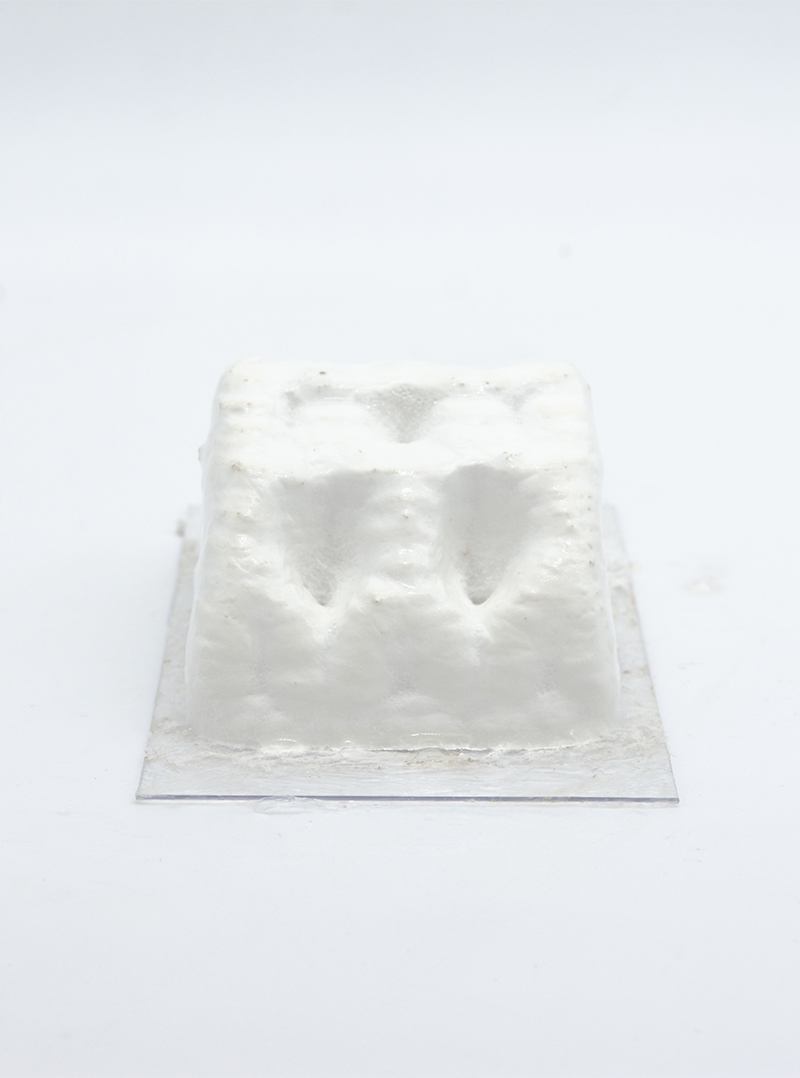
Lorenzo Silvestri
Product Designer - Talent in Residence
Born in 1998 in Puglia, in the province of Bari, he moved to Milan 6 years ago to begin his studies in industrial product design at Politecnico. He graduated in 2020 and decided to deepen his studies first by attending the master courses in Integrated Product Design, then through an experience abroad at the Elisava University in Barcelona. During these years he has developed a special interest in researching the expressiveness and narrative of objects. He believes that mature design, in order to have a positive ethical and social impact, must create a deep relationship and dialogue between people and artifacts.
Abstract
The research thesis aimed to investigate, through a mixture of the design practices of Digital Biofabrication, Material Driven Design and the Do It Yourself approach, the opportunities related to the field of product design generated by the combination of clay and fungal materials. In particular, the investigation is part of an implementation strand in which a new perspective emerges related to the figure of the designer himself, capable – through his choices – of shedding light on the paradox underlying the dynamics of industrial production systems and defining new ways of understanding materiality and the relationship with natural resources and living organisms.
Within the contemporary scenario, in which the capitalist model sees the technosphere feeding at the expense of the biosphere, to the point of subjugating it in toxic logics, the contradictions of a system destined for collapse emerge that imposes, now more than ever, an escape from traditional production models. The need to escape the gravitational force exerted by anthropocentric dynamics has led to the emergence of new methods for sourcing, transforming and preserving resources based on the implementation of the metabolic processes of living organisms. Rooted in this vision, this work employs Digital Biofabrication with the purpose of establishing a collaborative relationship between the human, machine and biological organism components. In this context, the designer acts as a facilitator of the ideation, development and production process, while digital fabrication technologies become a means of guiding the growth of living materials toward the achievement of specific design goals.
With this in mind, Terraforma aimed to explore and demonstrate the application possibilities that unfold at the intersection of the material areas of greenware clay and mycelium in relation to 3D printing processes via Liquid Deposition Modeling, first from the standpoint of theorizing their compatibility, then through a field investigation of the fabrication, cultivation, and assembly phases involved. The final design output, a coffee table, is proposed as a demonstrative manifesto of the potential material qualities of the hybrid material obtained within product applications, but also of a mature design practice in which fabrication processes and assembly logics are themselves shaped by the metabolic processes of the organism.


